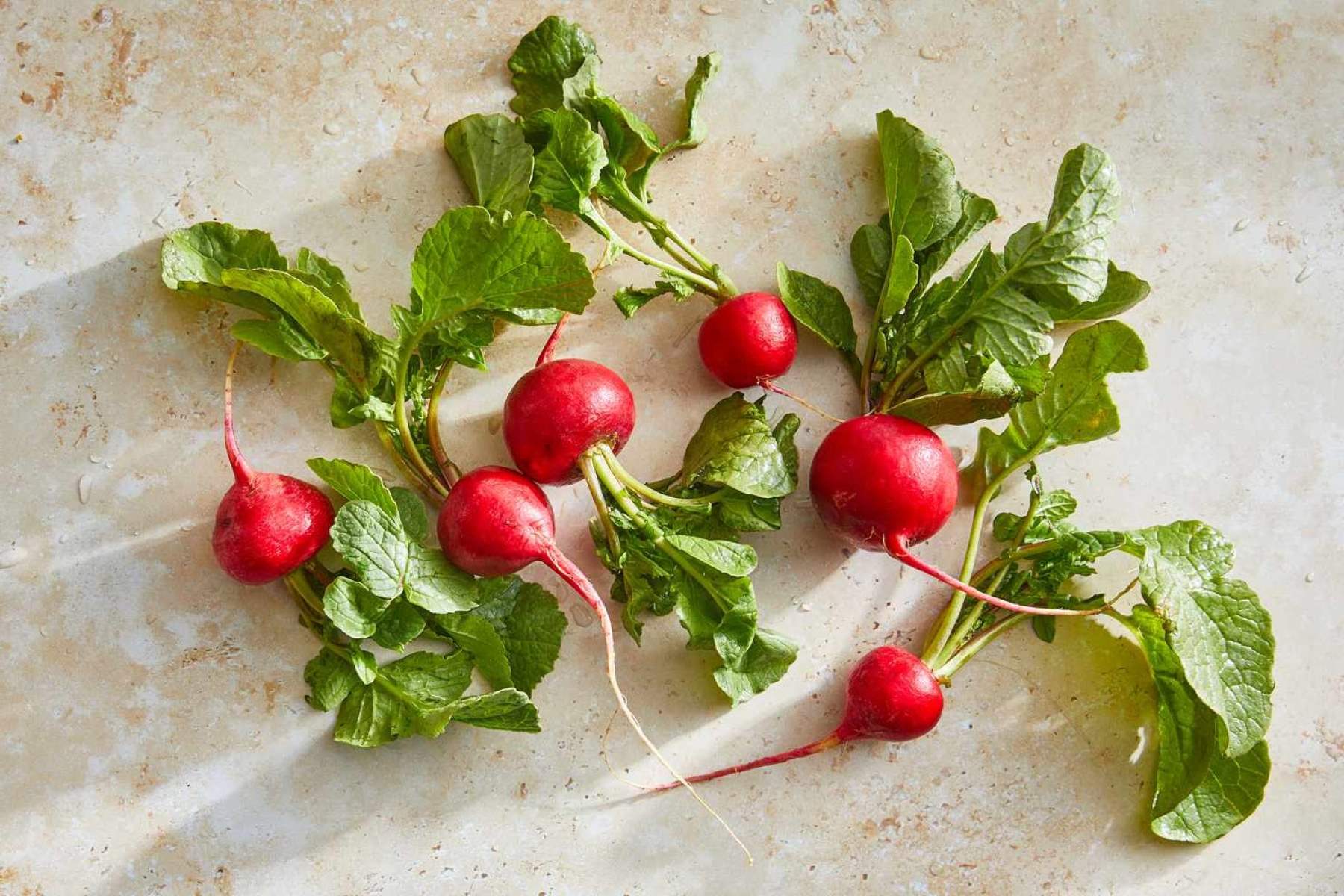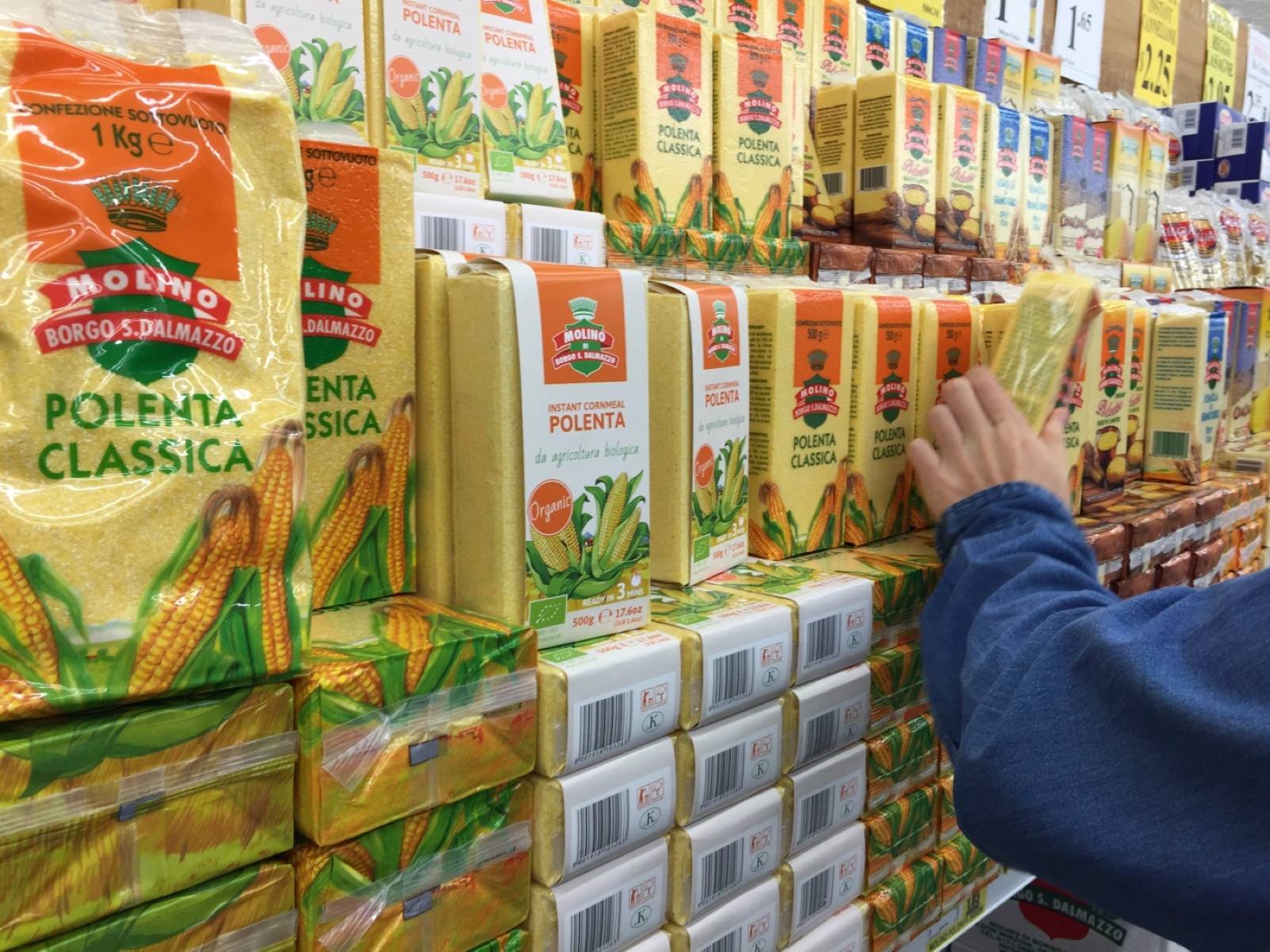Home>Food and Cooking>The Ultimate Guide To Storing And Extending The Shelf Life Of Store-Bought Hummus


Food and Cooking
The Ultimate Guide To Storing And Extending The Shelf Life Of Store-Bought Hummus
Published: February 2, 2024
Discover expert tips for storing and prolonging the freshness of store-bought hummus with our comprehensive guide. Learn essential food and cooking techniques to maintain its quality.
(Many of the links in this article redirect to a specific reviewed product. Your purchase of these products through affiliate links helps to generate commission for Regretless.com, at no extra cost. Learn more)
Table of Contents
Introduction
Hummus, a delectable Middle Eastern dip made from chickpeas, tahini, lemon juice, and garlic, has gained widespread popularity for its creamy texture and savory flavor. Whether it's used as a dip for pita bread, a spread for sandwiches, or a flavorful addition to salads, hummus has become a staple in many households. While homemade hummus is a culinary delight, store-bought hummus offers convenience without compromising on taste.
However, one common concern that hummus enthusiasts encounter is its shelf life. How long can store-bought hummus last? What are the best practices for preserving its freshness? In this comprehensive guide, we will delve into the nuances of storing store-bought hummus and extending its shelf life. By understanding the factors that influence hummus shelf life and implementing proper storage techniques, you can savor your favorite dip for longer periods while ensuring its quality and flavor remain intact.
Join us as we explore the art of preserving store-bought hummus, uncovering insightful tips and expert recommendations that will empower you to make the most of this beloved dip. Whether you're a hummus aficionado or a newcomer to the world of chickpea-based delicacies, this guide is designed to equip you with the knowledge and strategies needed to keep your store-bought hummus fresh, flavorful, and ready to elevate your culinary creations.
Understanding Hummus Shelf Life
Hummus, a delectable blend of chickpeas, tahini, lemon juice, and garlic, boasts a rich and creamy texture that captivates the palate. When it comes to understanding the shelf life of store-bought hummus, several factors come into play. The primary determinants of hummus shelf life include its ingredients, preservatives, packaging, and storage conditions.
Store-bought hummus typically contains preservatives, such as citric acid and preservative oils, which contribute to its longevity. These additives help inhibit the growth of bacteria and mold, extending the shelf life of the product. Furthermore, the packaging of store-bought hummus, whether it's in airtight containers or vacuum-sealed packages, plays a crucial role in maintaining its freshness.
The storage temperature also significantly impacts the shelf life of hummus. When stored at a consistent temperature, preferably in the refrigerator, hummus can retain its quality for an extended period. Exposure to fluctuating temperatures, especially at room temperature, can accelerate the deterioration of hummus, leading to changes in texture and flavor.
It's important to note that once opened, the shelf life of store-bought hummus is influenced by factors such as exposure to air and cross-contamination. As the dip comes into contact with air, oxidation occurs, affecting its color and taste. Additionally, cross-contamination, such as using the same utensils for hummus and other foods, can introduce bacteria and reduce the overall shelf life of the product.
By gaining a deeper understanding of these factors, hummus enthusiasts can make informed decisions regarding the purchase, storage, and consumption of store-bought hummus. Armed with this knowledge, individuals can take proactive measures to prolong the shelf life of their favorite dip, ensuring that each serving delivers the delightful flavors and creamy consistency that hummus is renowned for.
Proper Storage of Store-Bought Hummus
Proper storage is paramount to maintaining the freshness and quality of store-bought hummus. Upon bringing home a container of this delectable dip, it's essential to adhere to specific storage guidelines to prolong its shelf life and preserve its delightful flavor.
Refrigeration is Key
Upon purchasing store-bought hummus, promptly refrigerate it to maintain its freshness. The cool and consistent temperature of the refrigerator helps slow down the growth of bacteria and preserve the texture and flavor of the hummus. Ideally, store-bought hummus should be stored at temperatures between 32°F and 40°F (0°C and 4.4°C) to ensure optimal preservation.
Airtight Containers
When storing store-bought hummus in the refrigerator, ensure that it is tightly sealed in an airtight container. This prevents exposure to air, which can lead to oxidation and compromise the flavor and color of the dip. Airtight containers also help prevent the absorption of other odors present in the refrigerator, preserving the authentic taste of the hummus.
Avoid Temperature Fluctuations
Consistency is key when it comes to storing hummus. Fluctuations in temperature can accelerate the deterioration of the dip, leading to changes in texture and taste. Therefore, it's important to place the container of hummus in a stable section of the refrigerator, away from temperature variances caused by frequent opening and closing of the refrigerator door.
Minimize Exposure to Air
To prolong the shelf life of store-bought hummus, minimize its exposure to air. When serving the dip, scoop out the desired portion and promptly reseal the container. This helps prevent oxidation and maintains the freshness of the remaining hummus. Additionally, pressing a sheet of plastic wrap directly onto the surface of the hummus before sealing the container can create a protective barrier against air exposure.
Cross-Contamination Prevention
To prevent cross-contamination, use clean utensils when serving store-bought hummus. Avoid using the same utensils for multiple food items, as this can introduce bacteria and compromise the shelf life of the dip. By maintaining proper hygiene and utensil usage, the risk of contamination is minimized, ensuring that the hummus remains fresh and safe for consumption.
By following these storage guidelines, hummus enthusiasts can savor the delightful flavors and creamy texture of store-bought hummus for an extended period. With proper refrigeration, airtight containers, and mindful handling, individuals can maximize the shelf life of their favorite dip, enhancing their culinary experiences with each indulgent serving.
Extending the Shelf Life of Store-Bought Hummus
When it comes to prolonging the shelf life of store-bought hummus, there are several strategic approaches that can be implemented to preserve its freshness and flavor. By leveraging these techniques, hummus enthusiasts can ensure that their favorite dip remains delectable for an extended period, minimizing waste and maximizing enjoyment.
Temperature Control
One of the most effective methods for extending the shelf life of store-bought hummus is to maintain strict temperature control. While refrigeration is essential for preserving the dip, storing it at the optimal temperature range of 32°F to 40°F (0°C to 4.4°C) is crucial. Consistently monitoring the refrigerator temperature and ensuring that the hummus is stored in the designated cold storage area can significantly slow down the growth of bacteria and maintain the dip's quality.
Avoiding Temperature Fluctuations
In addition to refrigeration, minimizing temperature fluctuations is vital for prolonging the shelf life of store-bought hummus. Fluctuations in temperature can expedite the deterioration of the dip, leading to changes in texture and taste. Therefore, it's important to place the container of hummus in a stable section of the refrigerator, away from temperature variances caused by frequent opening and closing of the refrigerator door.
Proper Sealing and Packaging
The manner in which store-bought hummus is sealed and packaged plays a pivotal role in extending its shelf life. Ensuring that the container is tightly sealed after each use prevents air exposure, which can lead to oxidation and compromise the dip's freshness. Furthermore, opting for vacuum-sealed packaging when purchasing hummus can further enhance its longevity by minimizing air contact and preserving its original flavor and texture.
Utilizing the Freezer
For those seeking an alternative preservation method, freezing store-bought hummus can effectively extend its shelf life. When properly stored in an airtight container, hummus can be frozen for up to 4 months without significant compromise to its taste and quality. Before freezing, it's advisable to portion the hummus into smaller servings to facilitate convenient thawing and minimize the need for repeated freezing and thawing, which can affect its texture.
Quality Utensils and Hygiene
Maintaining proper hygiene and utilizing clean utensils when serving store-bought hummus are essential practices for extending its shelf life. By avoiding cross-contamination and ensuring that only clean utensils come into contact with the dip, the risk of introducing bacteria is minimized, preserving the hummus's freshness and safety for consumption.
By implementing these strategies, hummus enthusiasts can effectively extend the shelf life of store-bought hummus, allowing them to savor its delightful flavors and creamy texture for an extended period. Whether through meticulous temperature control, proper sealing and packaging, freezer storage, or hygiene practices, these approaches empower individuals to make the most of their beloved dip, enhancing their culinary experiences with each serving.
Tips for Maintaining Freshness
Ensuring the lasting freshness of store-bought hummus involves a combination of thoughtful practices and strategic approaches. By incorporating these tips into your hummus storage routine, you can elevate the longevity and quality of this beloved dip, enhancing your culinary experiences with each indulgent serving.
Optimal Refrigeration
Maintaining the ideal storage temperature is paramount for preserving the freshness of store-bought hummus. Refrigerate the dip promptly after purchase and ensure that it is consistently stored at temperatures between 32°F and 40°F (0°C and 4.4°C). By adhering to this temperature range, you can effectively slow down bacterial growth and maintain the delightful texture and flavor of the hummus.
Mindful Handling
When serving store-bought hummus, practice mindful handling to minimize air exposure. Scoop out the desired portion and promptly reseal the container to prevent oxidation. Additionally, consider pressing a sheet of plastic wrap directly onto the surface of the hummus before sealing the container. This extra layer of protection acts as a barrier against air exposure, contributing to the preservation of the dip's freshness.
Airtight Containers
Invest in high-quality, airtight containers for storing hummus in the refrigerator. Airtight seals prevent air from infiltrating the container, safeguarding the dip against oxidation and the absorption of other refrigerator odors. By minimizing air exposure, these containers help preserve the authentic taste and creamy consistency of the hummus for an extended period.
Strategic Portioning
Consider portioning the store-bought hummus into smaller servings before refrigeration. By doing so, you can minimize the frequency of opening and resealing the container, reducing air exposure and maintaining the freshness of the remaining hummus. This strategic approach to portioning can contribute to prolonging the shelf life of the dip.
Hygienic Practices
Maintain strict hygiene when handling store-bought hummus to prevent cross-contamination. Use clean utensils when serving the dip and avoid double-dipping to minimize the risk of introducing bacteria. By prioritizing hygienic practices, you can uphold the freshness and safety of the hummus, ensuring that each serving is a delightful culinary delight.
By integrating these tips into your hummus storage and handling routine, you can optimize the freshness and longevity of store-bought hummus. Whether through meticulous refrigeration, mindful handling, airtight containers, strategic portioning, or hygienic practices, these tips empower you to savor the delightful flavors and creamy texture of hummus with each serving, elevating your culinary experiences and reducing waste.
Conclusion
In conclusion, mastering the art of preserving and extending the shelf life of store-bought hummus is a rewarding endeavor that empowers individuals to savor the delightful flavors and creamy texture of this beloved dip for extended periods. By understanding the factors that influence hummus shelf life and implementing proper storage techniques, hummus enthusiasts can make the most of their culinary indulgence while minimizing waste and ensuring the safety of the dip for consumption.
Throughout this comprehensive guide, we have explored the nuances of hummus shelf life, delving into the impact of ingredients, preservatives, packaging, and storage conditions on the longevity of store-bought hummus. By gaining insight into these factors, individuals are equipped to make informed decisions regarding the purchase, storage, and consumption of hummus, thereby enhancing their culinary experiences with this versatile and flavorful dip.
The proper storage of store-bought hummus has been emphasized as a fundamental practice for maintaining its freshness. From refrigeration and airtight containers to minimizing air exposure and preventing cross-contamination, these storage guidelines serve as pillars for preserving the quality and flavor of hummus. Furthermore, the strategic approaches for extending the shelf life of store-bought hummus, including temperature control, proper sealing and packaging, freezer storage, and hygiene practices, offer individuals a repertoire of techniques to maximize the longevity of this delectable dip.
The insightful tips for maintaining freshness serve as practical and actionable strategies for enhancing the preservation of store-bought hummus. By incorporating optimal refrigeration, mindful handling, airtight containers, strategic portioning, and hygienic practices into their hummus storage routine, individuals can elevate the longevity and quality of this beloved dip, reducing waste and maximizing enjoyment with each serving.
In essence, the journey of preserving store-bought hummus extends beyond mere storage practices; it embodies a commitment to savoring the essence of this culinary delight. Through a harmonious blend of knowledge, mindfulness, and strategic approaches, individuals can embark on a flavorful and sustainable culinary experience, relishing the creamy textures and savory nuances of hummus with each indulgent serving.
As hummus continues to grace tables and tantalize taste buds around the world, the insights and techniques presented in this guide serve as a compass for hummus enthusiasts, guiding them toward a deeper appreciation and prolonged enjoyment of this beloved dip. By embracing the principles of proper storage, strategic preservation, and mindful handling, individuals can embark on a journey of culinary delight, savoring the timeless allure of store-bought hummus while nurturing a sustainable and gratifying culinary lifestyle.











